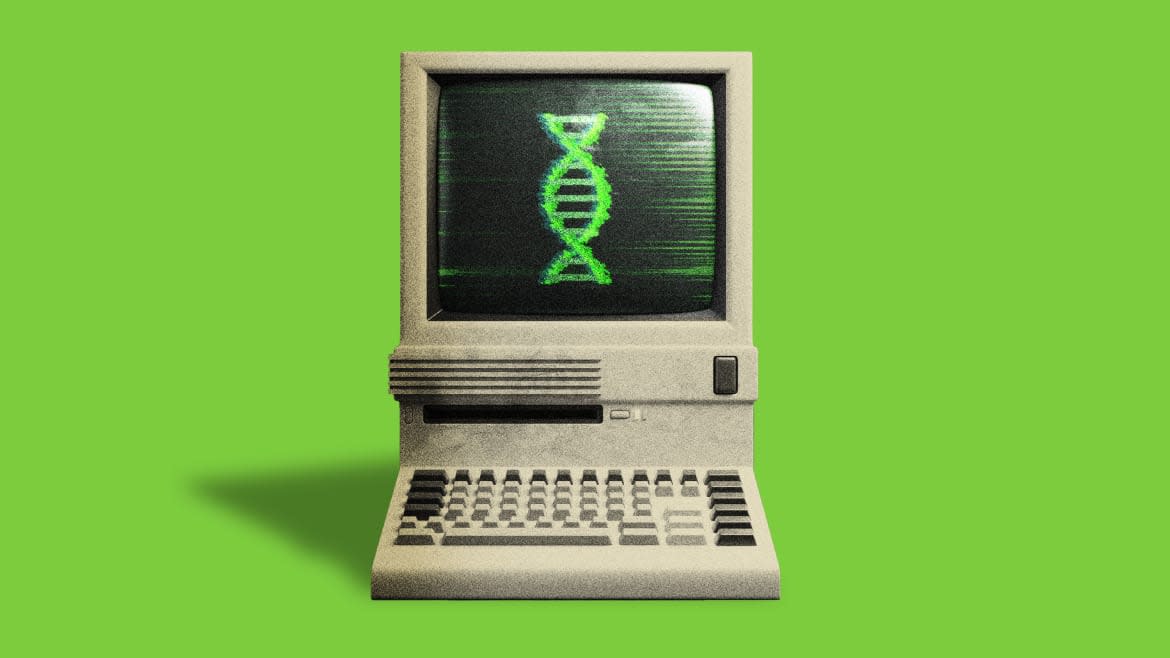The Creepy and Unconstitutional Government Database of Newborn Babies’ DNA

Expectant parents invite doctors and nurses into the delivery room, not police officers. But law enforcement agencies have backdoor access in New Jersey.
The intrusion starts within 48 hours after birth, when maternity ward workers prick an infant’s heel to collect blood for laboratory testing. The screening allows for early detection of rare conditions like cystic fibrosis and sickle cell disease.
All states do this. But afterward they destroy the paper cards they use to collect dried bloodspots. New Jersey keeps the blood.
Cops Love Immunity—Until They’re the Ones Abused by Police
Without telling parents, the state has stored samples from each baby born since the 1970s, creating a secretive database with millions of entries. Blood samples stay on file for 23 years. DNA data might last longer on third-party servers.
New Jersey does not say precisely what happens to the data, but the state gives itself permission to share the genetic markers it collects with anyone it wants for any reason, including law enforcement. The risk is not just hypothetical. New Jersey already has turned over infant blood samples to police agencies without a warrant, leading to criminal charges for at least one father.
Technically, parents can opt out of the screening if they object on religious grounds. But hospitals hide this option, and some families report threats of being reported to Child Protective Services if they refuse. A half-page handout from the New Jersey Department of Health claims “all” infants are “required by law” to give blood to the state.
The handout says nothing about long-term storage.
Erica Jedynak, a mother from Boonton, New Jersey, was blindsided on her delivery day. She did not learn until later that the state would keep her son’s blood on file for unknown purposes. The intrusion felt like an eerie scene from Gattaca or some other dystopian science fiction horror film.
“There is something morally not right that the government would be tracking him or almost assuming the guilt of babies,” Jedynak says. “I have to protect him from what appears to be a very creepy database.”
The shadowy scheme also concerns Hannah Lovaglio, a mother from Cranbury, New Jersey. “It is a little off-putting to think that my child’s blood is sitting in some state facility in New Jersey,” she says. “I try to keep track of all of my kid’s things, but that is just totally out of my control and unsettling.”
Rather than go away quietly, both mothers are fighting back in a federal class-action lawsuit in U.S. District Court for the District of New Jersey. Our public interest law firm, the Institute for Justice, represents the class.
Here’s Why Legalized Marijuana Won’t End the War on Due Process
The case builds on earlier lawsuits exposing invasive uses of baby blood samples without parental consent. Plaintiffs caught Texas turning over DNA data to the Pentagon for a national registry. Michigan was selling newborn blood for research. So was Minnesota. Court rulings forced all three of these states to stop.
Other jurisdictions respect parental rights voluntarily. But holdouts remain. California, for example, continues to stockpile baby blood spots for law enforcement and research. A state bill would give parents more control, but legislation should not be necessary.
The Fourth Amendment of the U.S. Constitution already guarantees the right to be secure against unreasonable searches and seizures. In the absence of a warrant, consent, or certain other conditions, all searches and seizures are unconstitutional.
Collecting blood from a baby just in case the child or a close relative does something illegal in the future falls far short of the standard. No judge, no matter how friendly to law enforcement, would authorize searches for evidence up to 23 years before a crime occurs.
Such warrants would put the United States in Minority Report territory. Yet this is where New Jersey wants to operate—minus the warrants. The abuse is just one way governments can treat people like criminals before they do anything wrong.
The Sheriff’s Office of Pasco County, Florida, uses a method it calls “predictive policing”—where people marked for scrutiny face surveillance, unannounced home visits, and hyper-aggressive code enforcement. All household members suffer. Tammy Heilman, who had a teenaged son on the “future criminals” list, endured five years of weekly and sometimes daily police harassment.
Houston, meanwhile, forces certain business owners to treat their customers like potential criminals. Since 2022, the city has required bars, nightclubs, convenience stores, game rooms, and sexually oriented businesses to install exterior lights and cameras, make recordings, and store the information for 30 days at their own expense.
Cops Can’t Be Allowed to Just Make Up Reasons for Pulling People Over
Upon request, these businesses must hand over video files to the police without a warrant. The scheme follows the New Jersey pattern. Law enforcement agencies conduct searches in advance or make someone else do it, and then mine the data when a need arises. The difference in New Jersey is the seizure of biometrics—an extra layer of intrusion.
These Fourth Amendment violations must end. Even when a crime has occurred and the police have a suspect, they must follow the Constitution. Conducting searches and seizures in advance increases the risks of abuse.
If babies are not safe from the law enforcement overreach, then no one is.
Brian Morris is an attorney and Daryl James is a writer at the Institute for Justice in Arlington, Va.
Get the Daily Beast's biggest scoops and scandals delivered right to your inbox. Sign up now.
Stay informed and gain unlimited access to the Daily Beast's unmatched reporting. Subscribe now.

 Yahoo News
Yahoo News 
